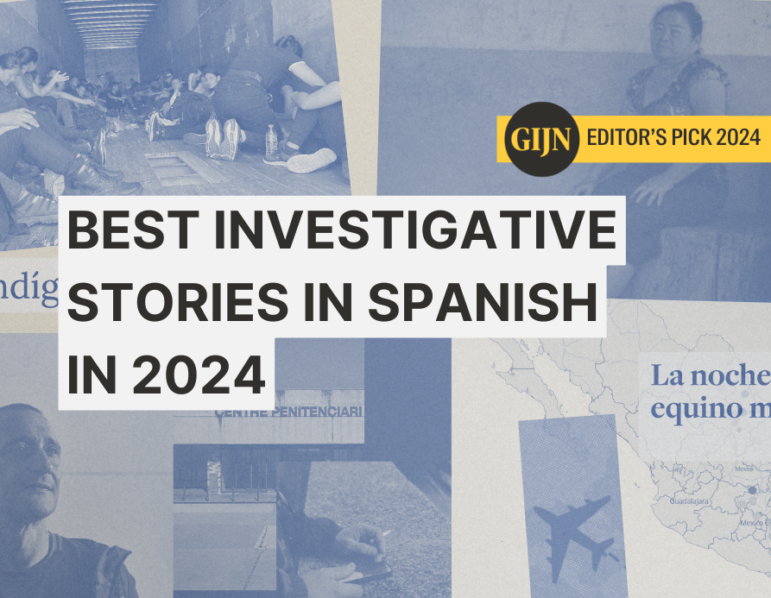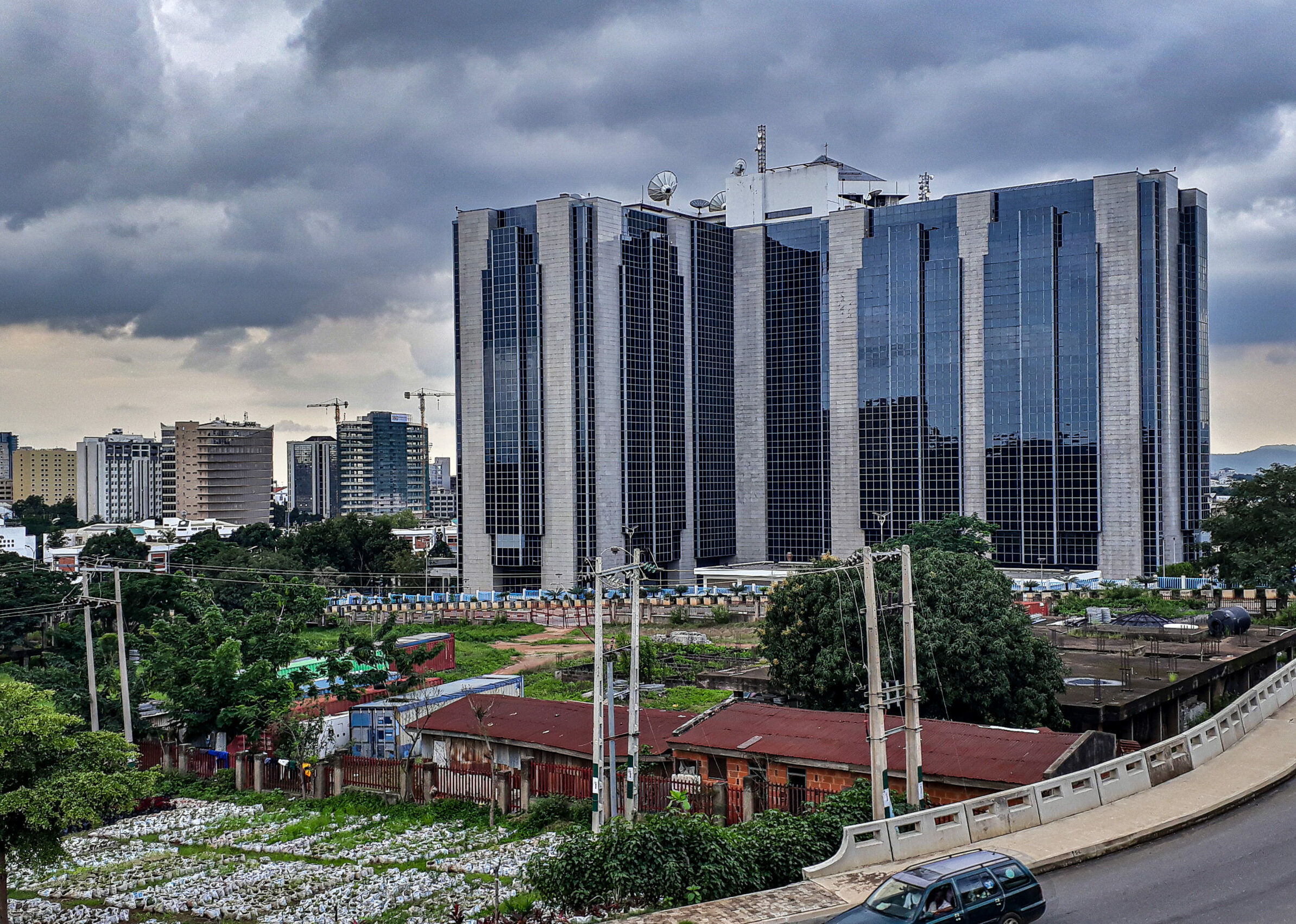

Join me on a tour of the best investigations from across the Spanish-speaking world, where journalists are uncovering the stories that impact their communities, from digging into organized crime to corruption and human trafficking.
In Latin America, as in other regions, the stakes for investigative reporters are high. In countries like El Salvador and Venezuela, reporters are exposing the darker sides of political power, from government corruption to unfulfilled promises. Meanwhile, in Argentina, Mexico, and Peru, investigative journalists have been working to reveal the deep links between organized crime, environmental destruction, and the exploitation of vulnerable communities.
The climate in which these reporters are working is increasingly challenging. According to Reporters Without Borders’ 2024 World Press Freedom Index, in the Americas “political actors employ disinformation campaigns, abusive prosecutions, and state propaganda that openly fosters distrust of the press and encourages polarization.” The analysis continues: “This violence, combined with physical attacks on journalists with total impunity, is fuelling a climate of censorship in South and Central America.”
Cuba, Venezuela, and Nicaragua lurk towards the bottom of the global rankings, and there are growing concerns about press freedom in Guatemala and Ecuador. Meanwhile, “year after year,” Mexico remains one of the world’s most dangerous countries for journalists, RSF notes. Five journalists were killed there this year.
The pieces in this list — many of which are collaborative — not only uncover hidden truths but also demonstrate the courage required to report on issues that challenge the structures of power. The stories reveal the role investigative journalism plays in difficult environments, and how important a free press is in holding the powerful accountable.
In curating this selection, I tried to highlight a diverse mix of formats, countries, and media outlets to highlight the impressive work being done. It was no easy task to choose just eight from the many outstanding investigations published in 2024 across more than 20 nations, so if you’d like to read more, check out the pieces from our Latin America Focus week, which ran earlier in the year.
Regional — Golden Opacity
This multi-part cross-border investigation reveals how criminal groups exploit the global trade in gold, disguising their operations under the facade of “artisan” mining while selling to international markets. It also exposes the devastating environmental impact gold mining can have, including widespread deforestation in Indigenous territories. Convoca worked in collaboration with leading investigative outlets from Latin America, such as Repórter Brasil, Plan V, Rutas del Conflicto, Consejo de Redacción, RunRunEs, El Pitazo, and Armando.info, to reveal that half of the gold exported from five Latin American countries is of “unknown” origin. The piece uncovers the sophisticated methods criminals use to evade oversight from the authorities. Reporters analyzed documents, scoured satellite imagery, and built a series of databases to document false sales records, fraudulent authorizations, “ghost” concessions, and the involvement of armed groups in the trade. Reporting in the field led them to several mining enclaves in the Amazon, Andes, and on the coast of Peru.
Mexico — Trailers: A Trap for Migrants
Migrants and asylum seekers face many dangers as they travel through Mexico: from traffickers and organized crime groups to the everyday risks they come across on the journey. This series, an investigative collaboration from the Latin American Center for Investigative Journalism — or EL CLIP, for the acronym in Spanish — and Noticias Telemundo, along with other media partners, exposes how nearly 19,000 people, including over 3,200 minors, have been transported in overcrowded trailers. Their reporting shows the hidden trafficking operations that have resulted in the deaths of at least 100 migrants between 2018 and 2023, from exposure to high temperatures or a lack of oxygen, or from road traffic accidents. The investigation also highlights the role of fake smugglers who pose as influencers, the lack of accountability from authorities, and harrowing first-hand accounts from those trapped in these trailers for dangerous journeys to the border of the United States. The team employed a variety of different investigative approaches for the series, including building a database to track trafficking routes and incidents involving trailers and gathering migrant testimonies that shed light on their experiences.
Venezuela — A Dangerous Assignment
This 90-minute documentary is a must-watch for any reporter interested in the high stakes of investigative journalism in repressive environments. A team from Frontline, the investigative documentary program from the US broadcaster PBS, worked in collaboration with the Venezuelan investigative group Armando.info to follow the trail of a major corruption scandal in Venezuela involving key figures in the current government in Caracas. The documentary is also powerful in how it tells the story of Roberto Deniz, a journalist forced into exile after facing threats for exposing the story. He had spent years cultivating sources and trawling through documents to be able to understand what was happening behind the scenes: “Normally, a journalist can access information from public records, and you can access officials and expect some kind of response. But that doesn’t happen in Venezuela,” he said. The documentary highlights the dangerous realities of reporting on authoritarian regimes, and with Armando.info marking its 10th anniversary this year, this film is a tribute to their investigative work and a reminder of the personal cost of investigating the powerful.
Spain — Riscanvi
Reporters covering technology, or interested in investigating how public authorities are using artificial intelligence, should take a look at this investigation from the Spanish daily newspaper El Confidencial. For the past 15 years, the RisCanvi algorithm — a name that blends the Catalan words for “risk” and “change” — has been used in prisons in the region to predict the likelihood of inmates re-offending. But its effects on prisoners’ lives have remained secret, with officials refusing to disclose key details about the program. Using interviews with inmates, lawyers, and experts, reporters uncovered how results from the algorithm can impact judicial decisions, including whether prisoners are granted permits or parole. The role of AI in such decisions raises ethical and legal questions about fairness and accountability: as the reporters put it, using algorithms for such “sensitive” issues runs the risk that “historic data and subjective variables can condemn many inmates to spend more time behind bars,” especially if they come from poor socio-economic backgrounds.
El Salvador — The Victims of Bitcoin City
On the site of a sleepy fishing village on the coast of El Salvador, there will one day, according to government plans, be a “Bitcoin City.” The megaproject is one of the key pillars of President Nayib Bukele’s promise to transform the country through Bitcoin. But while foreign investors have started arriving hoping to profit from the promise of the project, nothing has yet been built. “Not even the first stone has been laid,” noted the reporter behind this investigation by El Faro. The piece explored how Bukele’s vision is inextricably linked to a plan to build the airport that will serve this crypto-based metropolis, which he hopes will one day be home to international Bitcoin enthusiasts housed in skyscrapers. But with the project’s future uncertain, this piece offers crucial insights into — in the author’s words — a “forgotten fishing village that seems poised to be transformed into a tourist paradise for fat wallets.”
Dominican Republic and Haiti — Border Massacre
Redacción Regional is an outlet that focuses on in-depth reporting on violence, inequality, and corruption. With this investigation, the team took an in-depth look into the crisis engulfing the Caribbean nation of Haiti, and its impact on neighboring Dominican Republic. The reporting shed light on the growing tensions between the two countries, explored the rise of anti-Haitian sentiment and ultranationalist militia groups, and delved into the violence being experienced by a vulnerable population. The piece examined the differing fortunes of two nations that share an island — and what it means for the people who live there, including both the political and physical barriers being constructed. Through a powerful narrative style and beautiful design, the investigation captured the realities on both sides of the border, making it an important resource for understanding the complexities of migration and xenophobia in the Caribbean.
Argentina — The Night of the Horses: The Largest Equine Rescue in South America
In 2019, over 700 malnourished, neglected horses were found abandoned in a field in Buenos Aires province: the rescue operation was the largest of its kind across all of Latin America. Four years later, the journalist Diego Fernández traced the perpetrators to a network of mafia groups involved in Argentina’s US$500 million horse meat export industry. Through interviews with whistleblowers, volunteers, and law enforcement, and by reviewing leaked documents, Fernández exposed how a system of corruption enabled this operation. The investigation — published by Gato Pardo, a pan-Latin American narrative outlet, is beautifully presented — and relevant for reporters covering animal rights and organized crime. The investigation earned Fernández a prize in the text category at the 2024 Gabo Awards.
Peru — Death Flights: Indigenous Leaders Murdered in a Territory Invaded by Clandestine Runways
New technology is making it possible for investigative reporters to track what is happening across huge swathes of jungle areas, tracking deforestation or in this case, the construction of illegal landing strips. A team of reporters for Mongabay Latam, in collaboration with Earth Genome, discovered 67 illegal landing strips in the Peruvian Amazon being used by narcotraffickers to transport drugs. Many of these clandestine airstrips are located within or near Indigenous communities, isolated reserves, and protected forest areas. Using satellite data and AI technology, and after consulting with 50 sources over the course of a year, the investigation traced how the construction of these airstrips has led to deforestation. The story also shed light on the impact on the local Indigenous communities — a number of leaders have been killed in recent years, and more are under threat. “These illegal runways not only cut into the territory and lead to deforestation of the jungle, they also establish the dynamics of terror,” the reporters noted.
 Andrea Arzaba is GIJN’s Spanish editor and director of the Digital Threats project. She holds a master’s degree in Latin American Studies from Georgetown University in Washington D.C. and a BA from the Universidad Iberoamericana in Mexico City. Her work has appeared in Palabra, Proceso Magazine, National Geographic Traveler, Animal Politico, and 100 Reporters, among other media outlets.
Andrea Arzaba is GIJN’s Spanish editor and director of the Digital Threats project. She holds a master’s degree in Latin American Studies from Georgetown University in Washington D.C. and a BA from the Universidad Iberoamericana in Mexico City. Her work has appeared in Palabra, Proceso Magazine, National Geographic Traveler, Animal Politico, and 100 Reporters, among other media outlets.











